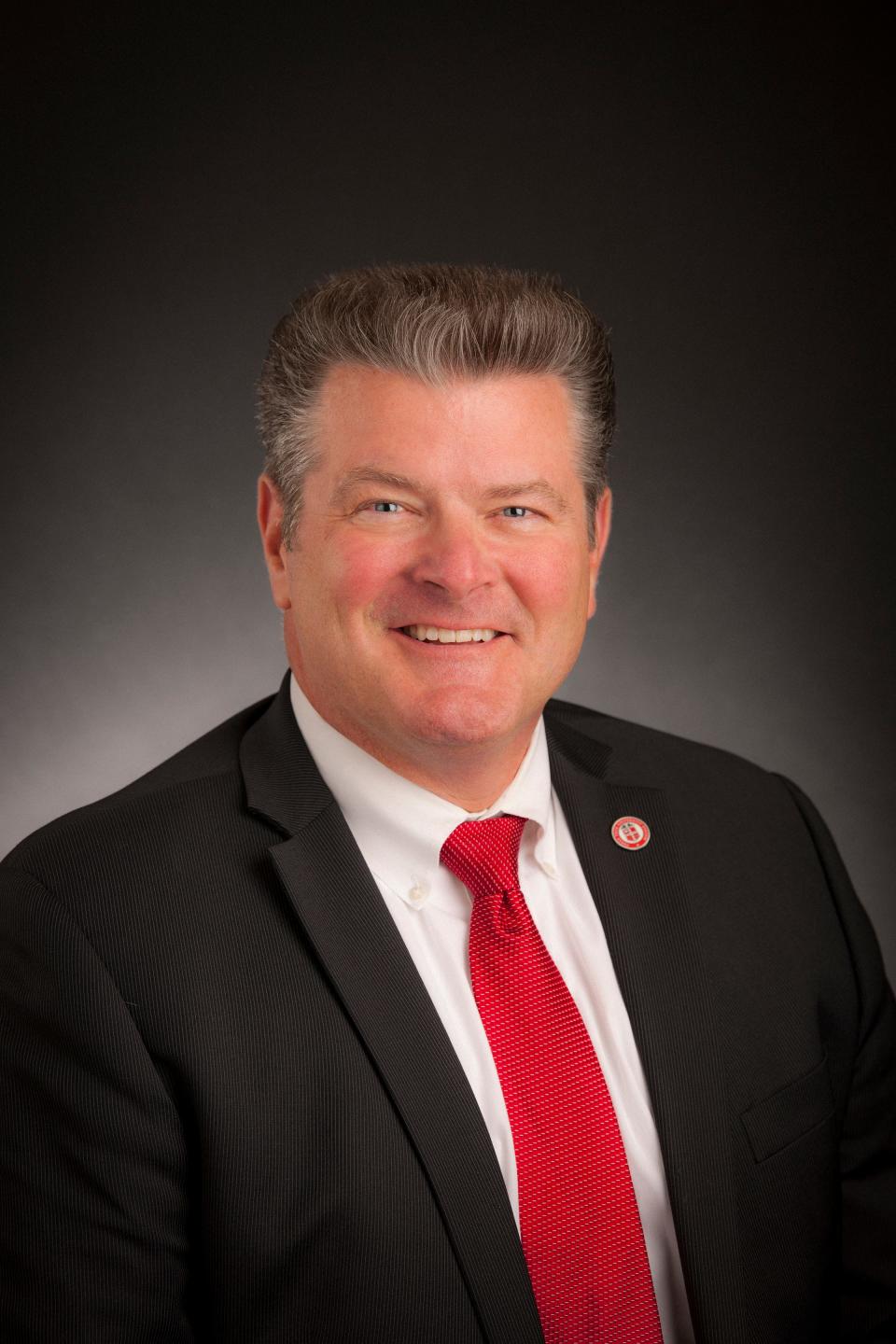Texas Tech, TTUHSC see increase in biannual budgets, focus on special initiatives
With the ink dried on a bill set to take effect on Sept. 1, the Texas Tech University System along with its flagship school are primed to continue their forward trajectory with coffers full.
The Tech System and its five components schools will receive millions of dollars in funding for the next two years through Texas State House Bill 1 — also known as the General Appropriations Bill — which gave the system a bit of a boost in funding compared to the previous period.
The 1,030-page bill spells out how much funding each institution and the system will receive until the 89th Texas Legislature convenes in 2025 and how much is allocated for certain programs, initiatives and research.
Texas Tech University System sees wins from the 88th Texas Legislature
From a 30,000-foot view, the system saw a 7% increase in state funding across all of the five component institutions.

According to a letter from the system chancellor, Dr. Tedd Michell, each institution along with the system had a list of requests and some of the big asks were met. Here is what they are:
Texas Tech University received $50 million in institutional enhancement funds to invest in academic excellence and student success. That includes $41 million in new funds plus $9 million in existing funds.
Texas Tech University Health Sciences Center received $10 million for the Institute of Telehealth to address the lack of medical access rural Texas communities face.
Angelo State University received $2 million for a commercial aviation program.
Midwestern State University received $2.4 million to help address workforce needs in STEM.
Texas Tech University Health Sciences Center El Paso received $65 million for the development of a partnership with the Medical Center of the Americas campus for a comprehensive oncology center partnership.
One of the biggest wins for the system is the Texas University Fund, often called the "TUF fund." The TUF is similar to the petroleum-backed Permanent University Fund but is specifically designated for emerging research institutions like Texas Tech.
Just like the PUF is written into the Texas Constitution, so will be the TUF if voters approve the $3.9 billion constitutional amendment come November.
The system, however, did not get everything it was requesting — most notably an increase in funding for system administration (i.e., the chancellor, vice chancellors, system offices, etc.).
Mitchell reported to the system's Board of Regents back on February 23 that it was asking lawmakers to pump up administrative funding from $1.9 million to $5.4 million per year.
The reason for this, Mitchell said, is that the system already runs "as tight as possible."
Unlike the University of Texas and Texas A&M University systems whose system administrations are funded in part by the Permanent University Fund, the Tech system has to ask its component universities to kick up some funding to the system to help support the offices.
However, HB 1 allocated the same $1.9 million for the next two years for TTU System administration.
Texas Tech University emerging as newest top-tier research school in the nation
Named in 2015 as a Tier One Carnegie research school, Texas Tech University is one of just 21 schools in the national to reach both Carnegie R1 status and be designated a Hispanic Serving Institution.

More: Texas Tech breaks records in enrollment, research and advancement
Last fall, the university also announced the school surpassed $200 million in research expenditures — a 38% increase since 2015 — and received $90 million in new research funding. More than 70% of that funding came from the federal government.
In addition, Tech received a $26 million grant from the National Science Foundation to fund the Center for Advancing Sustainable and Distributed Fertilizer for an initial five years, with the possibility of renewing the grant for five more years and another $25 million. Through CASFER, Texas Tech partners with other top research institutions in the nation, including the Massachusetts Institute of Technology, Georgia Institute of Technology, Case Western Reserve University and Florida A&M.
If the TUF is passed in November, the university will receive an estimated $44 million in research funding in 2024.
“The Texas University Fund represents a transformational investment in higher education,” Tech President Lawrence Schovanec said. “It will help grow the research enterprise at universities benefiting from these funds, resulting in greater innovation, economic development and federal investment.”
The increase in research funding the university receives also reflects the amount of state funding lawmakers are willing to invest in the school.
Seeing a 16% increase in funding compared to the 87th session in 2021, Tech will receive $266 million in 2024 and 2025 for formula and nonformula funding (excluding Capital Construction Assistance Projects revenue bond debt service).
TTUHSC working to connect rural Texas communities to health care resources
The Texas Tech University Health Sciences Center has seen an almost 10% increase in funding since the 87th session and will receive over $168 million in 2024 and 2025.

Being at the forefront of telehealth, TTUHSC President Lori Rice-Spearman said the 10 million additional dollars the university received will allow them to build the infrastructure for a telehealth medicine hub at the Permian Basin campus in Odessa, which will be duplicated throughout the rest of the six campuses.
"The model is for us to push as much health care as we can via telehealth and digital innovation into the rural community," Rice-Spearman said. "One of the things that we don't want to happen is for health care to be taken out of the community, because it's such a stabilizing force within many of our rural communities."
The Institute for Telehealth and Digital Innovation will be tasked with overseeing the implementation of this project; however, TTUHSC is no stranger to setting up a telehealth hub.
"We've had two initial successes — one is in Herford, Texas and another one is in Marathon, Texas," Rice-Spearman said. "We've been able to establish some health care there in those communities who have historically not been able to have access to care in those areas, particularly along the lines of general surgery and family medicine."
This funding is just one of the many telehealth projects TTUHSC is working on, such as "CATR powered by TCHATT" — a teletherapy program for K-12 students — and Next Gen 911, which was built upon by a recently signed bill this session.
Rice-Spearman said the TTUHSC is working on problems rural communities from the Panhandle down to the Permian Basin face, and she is grateful for the support the state has shown in funding important projects.
"Out of all of the health-related institutions, we have a very unique story to tell out here in West Texas on how we are changing health disparities, how we are improving the health of not just individuals, but entire communities," she said. "We have a very population-health approach as a health-related institution, and we have to be sure to tell that story."
Overall, the increase in Tech's and TTUHSC's overall budget and special projects shows lawmakers' willingness to invest in West Texas higher education this session, which Chancellor Mitchell touts as a "banner year" for the system.
For every dollar invested at Tech, the state will see a return of $23.22 with a return on investment of $22.68 at TTUHSC, according to a 2021 report from the Texas Tech System.
"I want to express my gratitude to our legislative leaders at the Capitol, starting with Gov. Greg Abbott, Lt. Governor Dan Patrick and House Speaker Dade Phelan, along with our strong West Texas delegation and our elected officials who are champions for us and the communities we serve," Mitchell said in his letter.
This article originally appeared on Lubbock Avalanche-Journal: Texas State Legislature OKs increase in Texas Tech, TTUHSC budgets

